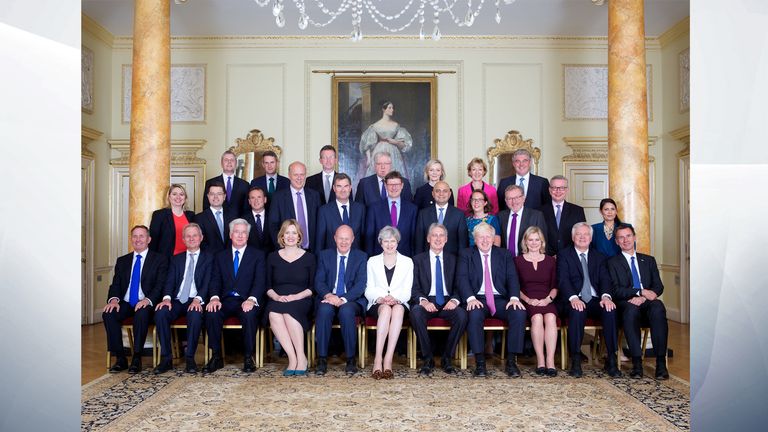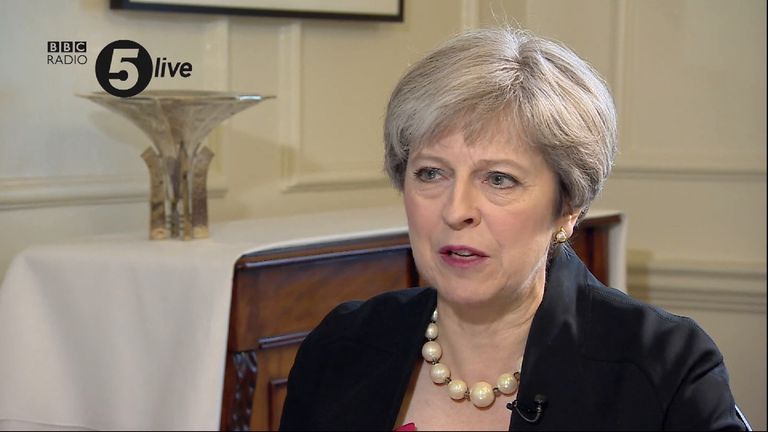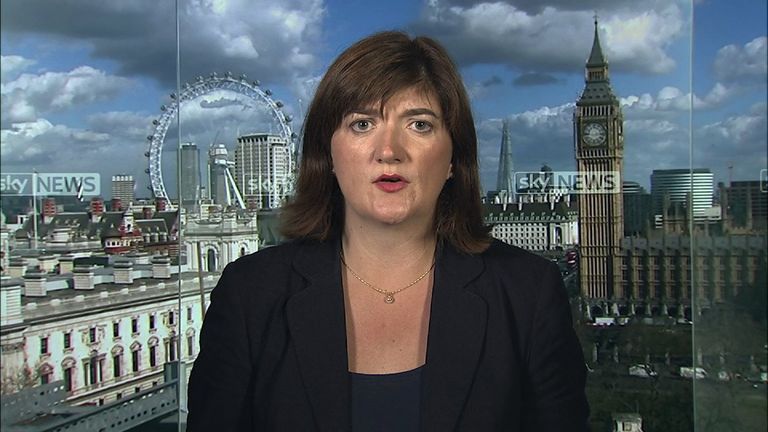How Theresa May lost the M4 motorway corridor - The Remain Road
Connecting London to South Wales, the M4 corridor is natural Tory territory - but all that changed in last month's election.
Tuesday 18 July 2017 22:14, UK
Strength and unity starts in Cabinet - that was the message from the Prime Minister to the suitably admonished loose-lipped members of her squabbling top team.
Theresa May's authority was supported by the Home Secretary and the officers of the backbench 1922 Committee backing her to fire the leakers.
And yet the stretch well beyond the leadership psychodrama or the type of Brexit transition.
The fundamental disagreement is really about the message sent by the public last month.
The effect is clear: a Government avoiding votes, strategically reversing, and pondering how to climb a legislative Everest.
The cause of the loss of majority is still a matter of debate.
For many in Cabinet, and for many Tory MPs, there is still a virtual landslide enjoyed by this Government for its Brexit plan. The lack of a Conservative majority only applies to the domestic parts of the manifesto. Without the so-called dementia tax, the majority would have increased, they say.
A place, or at least a route, that tells a quite different story is the M4 motorway connecting London to South Wales.
The M4 corridor is synonymous with the artery of Britain's highest-value businesses - international multinationals, proud citizens of the world, and natural Tory territory.
Until last month.
The swings against the Conservatives in Kensington and Putney were 10%, leading to the loss of the former. The Tories were targeting Slough as well as Brentford and Isleworth - but instead, they saw 8% swings to Labour.
Reading East and Bath were lost on 10% swings to Labour and the Lib Dems respectively.
Swindon seats, home to Honda car factories, are back as Labour targets after swings of 4%.
Local activists were confident of a win in Bristol, where the PM visited Bristol East during the campaign. Instead, there was a 9% swing against the Tories - leading to the loss of Bristol North West.
And in the Welsh capital, Cardiff North fell to Labour on an 8% swing.
In Putney, I meet Julie and Anthony, two lifelong Conservatives - retired City workers - who say they feel "absolutely" forgotten by the Tory approach to Brexit.
Over in Reading East, a former minister who lost his seat, Rob Wilson, says Brexit was the catalyst too for his shock defeat.
He told me: "This whole 'Brexit means Brexit' worked successfully in some parts of the country, but in areas like Reading East, with students and young professionals, it just didn't work."
Mr Wilson said the Tories "cannot form a majority government" without reconnecting to people in the M4 corridor.
"If we keep losing those young people and students at the rate of knots we've been losing them, then we'll become a very small party indeed," he said.
It is a message echoed by David Cameron - "depressed" by the losses in major cities and amongst young people.
Polls show that he won among thirty-somethings against Ed Miliband just two years ago, and Theresa May got about half of Jeremy Corbyn's share of the same age group last month.
The Brexit party divides are not confined to the Conservatives. Indeed, in Bristol North West, winning Labour candidate Darren Jones stood on a platform of "pro-European Labour".
On the M4, the PM zooms past the constituencies she thought she would win, and some she lost on the way, back to her Maidenhead home every week.
Soon, her ministers will be jetting off from Heathrow too for some summer relief.
Some staycationing around the M4 might well be a fruitful part of the summer of introspection.








